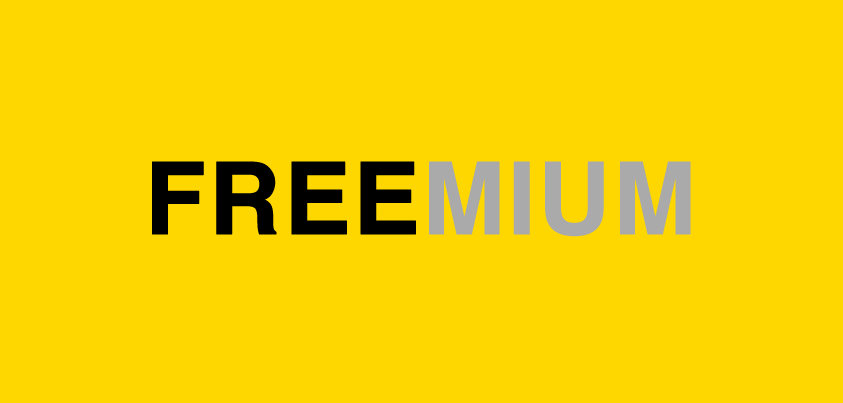
As technology has evolved the cost of providing many products and services has fallen to practically zero leading to the dawn of the Freemium era. Forward thinking companies have embraced a business model that we've come to know as Freemium. The model combines two different words and ideologies; free and premium, bringing them together to create freemium business ventures.
Freemium is not simply giving away premium products for free or even charging for previously free products. It's an entirely different model that relies on providing as many people with a free version of their product for mass distribution whilst upgrading a percentage of it's consumers into premium customers by adding more features, throwing in a bonus or removing certain restrictions.
The concept of freemium is deceptively simple; you generate revenue by offering a free product or service with an upsell or premium edition. The real art then is in deciding how much of the farm you give away for free.
One of the key components of the freemium model in the tech world is based on the decreasing costs of production. In a traditional business creating several thousand books to give away for free in the hopes that a small segment would attend an event by the author would require a huge upfront investment and may even cause a monetary loss. However in the digital age you can create hundreds of thousands of ebooks for practically the same price as producing a single book as each extra ebook requires no extra materials. In the industry this is described as the marginal cost (the cost of producing an additional unit of product) reducing to zero.
Going back to the case of the author wanting people to attend his event, in this latter scenario it actually makes sense to give out as many books as possible at no cost, in order to cast a wider net and bring in more people at no extra cost. The key thing to grasp here however is that the ebook is still a full product in itself, it is not simply an advertising platform but rather a complete book that can be read, enjoyed and learned from without actually ever meeting the author. There are also no adverts or subscriptions subsidising the ebook, it is simply given away without expecting anything in return.
You can duplicate digital products at almost no cost. So after producing an initial file, say a tutorial video, the production of either 100 or 100 million files costs practically the same as it is only distribution costs which technically decrease per unit in a fixed cost scenario. Compared with traditional physical production, this is a very disruptive. These changes create a situation with a lot of new challenges such as mass piracy.But more importantly, it also creates a lot of new possibilities, to experiment with a completely business model.
The beauty of this model is that it can benefit from the best of both worlds (free & premium). Users enjoying the free part of your product can help your brand go viral by sharing links, inviting friends and generally making a lot of noise. A certain percentage of these people will then go on to become paying members when their curiosity peaks and their interest and desire for more justifies paying for the premium version.
